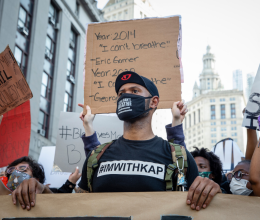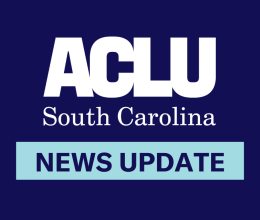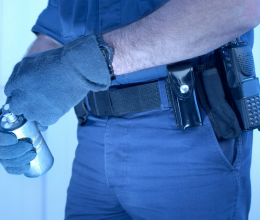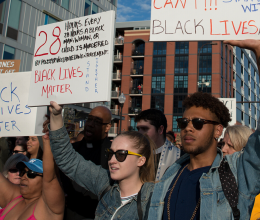
Yesterday the Charleston Police Department and Charleston County Sheriff's Office announced plans to increase police actions in Charleston, including ‘pop-up traffic checkpoints’ and the activation of the SWAT team for proactive interdiction patrol.
We know what happens when police go down this road, it’s not new. All this will do is further criminalize Black and poor people. For example, while research shows that Black and white people use marijuana at roughly the same rate, Black people are 4.2 times more likely to be arrested for marijuana possession in Charleston County.
This police escalation comes nearly two months after Charleston area law enforcement departments participated in mass police violence on May 31 in Marion Square, deploying potentially lethal weapons against people peacefully protesting for racial justice and against police violence. And, later that night area law enforcement continued their violence against Eastside community members. Yet, the Charleston Police department and Charleston County Sheriff’s Office continue to ignore community calls for an apology and investigation into their officers’ actions.
The activation of SWAT for proactive interdiction patrols signals an additional concern. As the ACLU found in its report, War Comes Home: The Excessive Militarization of American Policing, the militarization of policing escalates the risk of violence, undermining civil liberties and disproportionately harming Black people.
Special Weapons and Tactics teams, commonly known as SWAT, were first created in the late 1960s to address imminent, violent situations that regular law enforcement officers were untrained for, such as hostage and active shooter situations. In the 1980s, approximately 20 percent of small towns in the U.S. had a SWAT team. By the mid-2000s that number had jumped to 80 percent, and by the late-1990s almost 90 percent of large cities had them. The number of SWAT raids also grew at an astonishing pace, from approximately 3,000 a year in the 1980s to approximately 45,000 a year by the mid-2000s. In addition to the massive uptick in their deployment, the mission of SWAT teams has also drastically changed.
According to the ACLU's report, as of 2013 79 percent of SWAT deployments were for the purpose of executing a search warrant while only 7 percent were for imminent, violent situations.
The deployment of SWAT teams for proactive interdiction patrols shows that Charleston’s police and sheriff’s departments are less concerned with serving and protecting our communities, and more concerned with waging war on the people who live in them.
Policing does not make our communities safer — experts have noted that there is no correlation between the number of police and crime rates. Yet, we continue to pour billions of dollars into our police and criminal justice system each year.
If our society truly wants to stop the murder and other forms of violence against Black people by police and actually make our communities safer then we must invest in people and communities instead of police and prisons. This will not fix all of our injustices, but it will be a major and necessary start.



